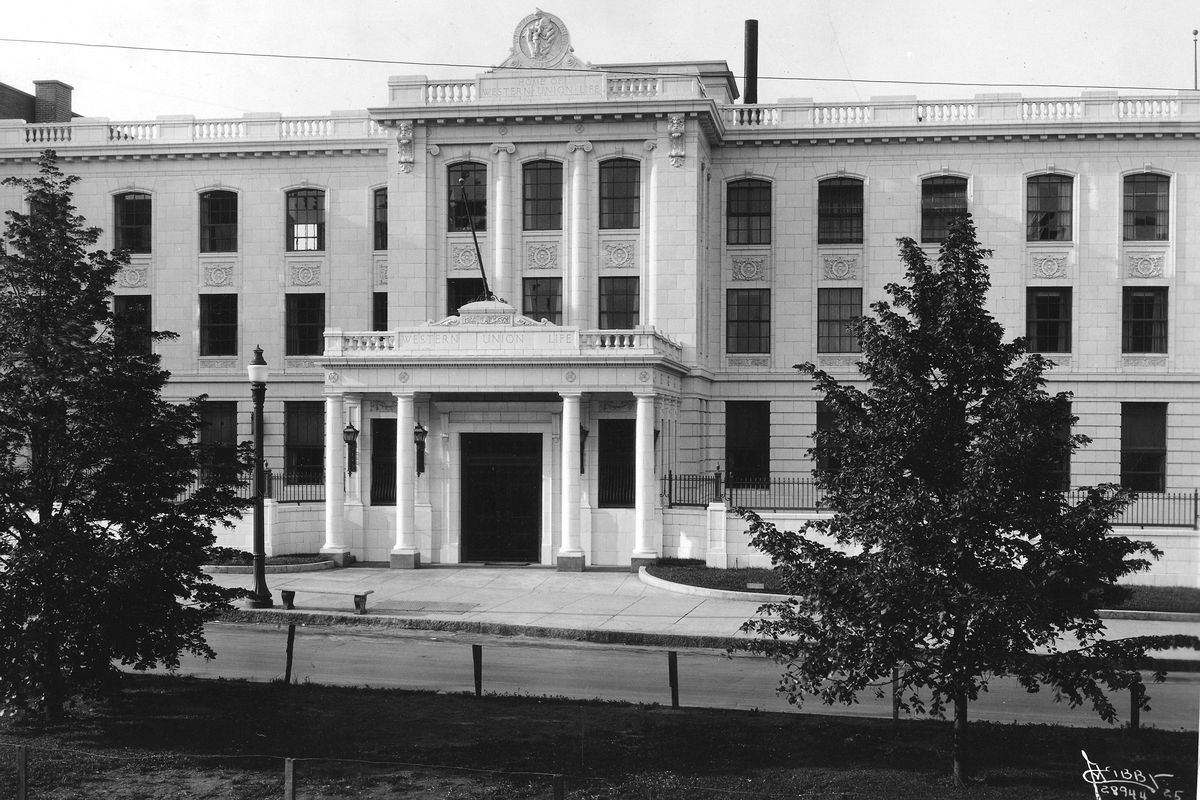Historic Chancery building in downtown Spokane listed for sale

A downtown Spokane historic building that local preservationists feared would be demolished may have a new lease on life after recently being listed for sale.
Cowles Real Estate Co. is selling the 18,000-square-foot, three-story Chancery building, which was designed by famed architect Kirtland Cutter and built in 1910.
“We are offering the building for sale because at the current time we are focusing our resources on other projects,” Doug Yost, vice president of development and acquisitions at Centennial Real Estate Investment Co., said in an email.
Centennial Real Estate Investment Co. and Cowles Real Estate Co. are subsidiaries of Cowles Co., which publishes The Spokesman-Review.
The property listing, which is being handled by co-brokers Kiemle Hagood, of Spokane, and Seattle-based CBRE Inc., does not include a sale price for the Italian Renaissance Revival-style building at 1023 W. Riverside Ave. but indicates owners are accepting offers until April 2.
“Because of the property’s location and the owners’ dedication to keeping Spokane’s downtown active, the owners are interested in entertaining acquisition proposals,” the property listing states. “Such proposals should cover the proposed future use and timeline as both are critical to invigorating the neighborhood.”
Cowles Real Estate Co. purchased the building from the Catholic Diocese of Spokane for $2.05 million in 2007, according to the Spokane County Assessor’s Office.
The building, which is in the heart of Spokane’s Riverside Avenue Historic District, housed the Catholic Diocese of Spokane for more than 53 years.
The listing indicates Cowles Real Estate is hopeful a buyer will emerge, given the recent community interest in the building. However, the company is committed to “figuring out an economically feasible future use for the property that brings energy to the corner and complements the surrounding neighborhood.”
After the Chancery building’s tenants were given notice to vacate in 2019, Cowles Co. Chairman Betsy Cowles told leaders of Spokane Preservation Advocates that it would be “extremely challenging” to save the building amid the company’s redevelopment plans for the block, according to a 2019 Spokesman-Review article.
“We got concerned because she said it might not survive,” said Karen Dorn Steele, SPA advocacy chair and former investigative reporter for The Spokesman-Review. “We talked with the Riverside Neighborhood Council. People were very concerned about it, and pre-pandemic we went around the neighborhood and talked to the Spokane Club and the Catholic Church and it was pretty universal they didn’t want to see that building come down.”
Under city code, buildings that are part of an historic district could be demolished if they are to be replaced with a structure approved by the Spokane Historic Landmarks Commission.
Spokane Preservation Advocates nominated the Chancery building for the Washington Trust for Historic Preservation’s Most Endangered Places list to raise awareness about its historic value and encourage its owners to choose an alternative to demolition.
The building was included on the list in September.
“We hope for redevelopment of the building – possibly mixed-use with some residential and commercial uses for it,” Dorn Steele said. “It’s a beautiful building. It has some old infrastructure inside, apparently, but it’s all very fixable, and the city offers historic property incentives for remodeling and repurposing the building.”
While the building is part of the Riverside Avenue Historic District, it’s not listed individually on the Spokane Register of Historic Places or the National Register of Historic Places.
Developers could qualify for tax incentives if a property is listed on the local or national historic registers, said Megan Duvall, historic preservation officer for the city and county of Spokane.
A federal income tax credit could be granted to properties on the National Register of Historic Places equal to 20% of construction costs. The city offers a “special valuation credit” for properties listed on the Spokane Register of Historic Places that subtracts a portion of rehabilitation costs from a building’s assessed value for up to 10 years.
“Over 10 years, it’s a great incentive and can be combined with the federal tax credit,” said Duvall, referring to the city’s incentive.
Duvall said the Chancery building is prime for redevelopment, as it sits on one of Spokane’s “most beautiful civic streets.”
“I think that building deserves another chance,” she said. “I’m really excited about the idea that somebody might be willing and able to purchase it at this point and look into a new life for it.”